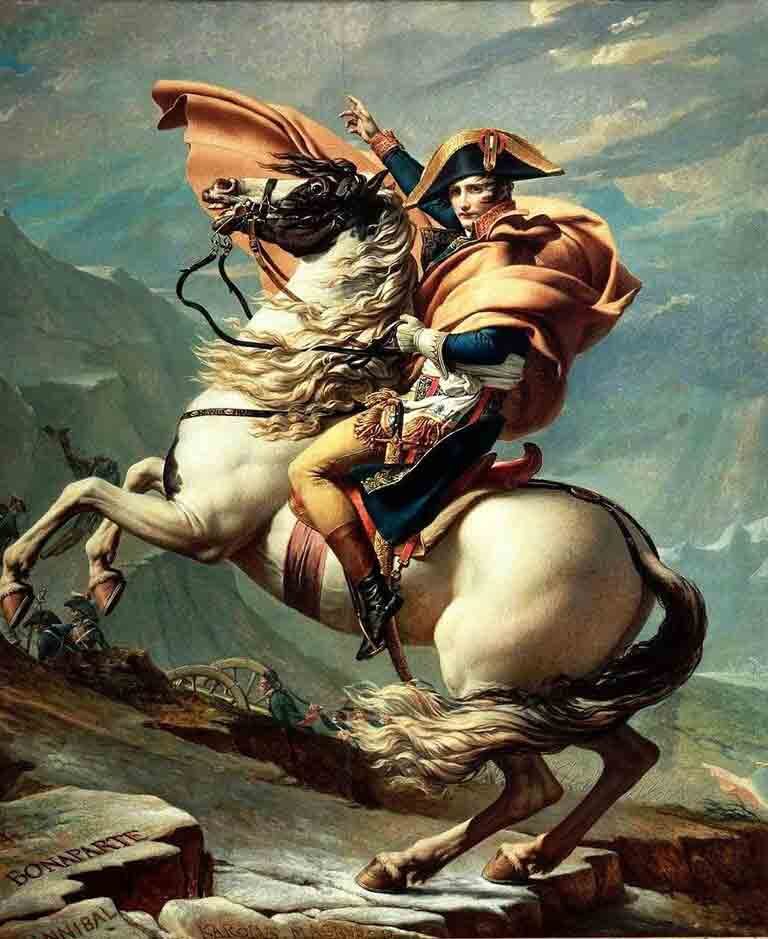Who are some of the greatest military commanders of all time? Since time immemorial, the relentless quest for energy has been an intrinsic aspect of the human experience, propelling individuals and societies towards unprecedented heights. This relentless pursuit has etched its indelible mark on the pages of history, steering the course of civilizations and shaping the contemporary landscape. The insatiable desire for energy, be it in the form of physical strength or intellectual prowess, has served as a driving force, compelling humanity to innovate and evolve.
Greatest Military Commanders of All Time
While a few of them had been deemed as despots to mankind, one can positively not undermine their bravery. These ten navy generals have stood the check of time and their deeds are remembered thus far. This list is randomly made, and not prepared based on bravery, or any ranking. Read on to search out more about the Greatest Military Commanders of All Time:
1. Genghis Khan: Architect of the Vast Mongol Empire
Genghis Khan, revered as one of the most formidable military leaders in history, emerged from the tumultuous backdrop of Mongolian nomadic tribes. His unparalleled ability to unite these once-warring factions laid the foundation for what would become the most expansive land empire ever known.
In his early years, Genghis Khan faced the harsh reality of exile when his family was ostracized and left to perish on the desolate Mongolian plains. Yet, against all odds, he not only survived but ascended to prominence among those who had initially scorned him. This resilience became the hallmark of his character.
Venturing into uncharted territories, Genghis Khan orchestrated a triumphant assault on the formidable Xi Xia territory of China, defying the odds of unfamiliar landscapes and numerical inferiority. His conquest extended beyond China, toppling the rulers of the Chin dynasty, the Kara Khitan Empire, Kwarizmian Empire, Volga Bulgars, and the Russians.
Rumors abound regarding Genghis Khan’s astute leadership, as he meticulously handpicked generals for his inner circle and pursued his objectives with unwavering determination. Rising from obscurity to lead the largest empire in history, his military achievements remain unparalleled.

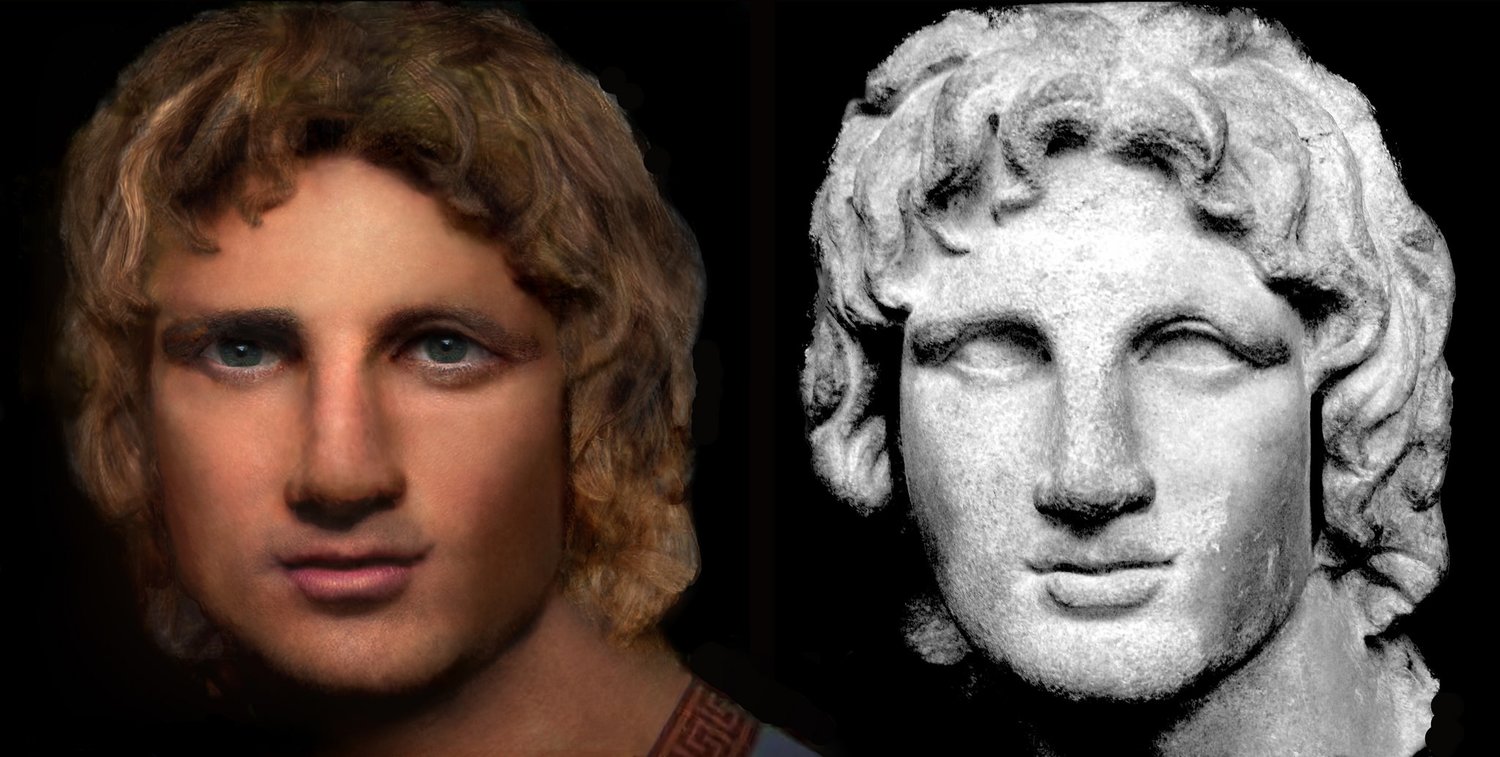
5. Norman Schwarzkopf: Architect of Victory in the Persian Gulf War
Norman Schwarzkopf, born in 1934 and passing away in 2012, emerged as a distinguished American general whose strategic brilliance and leadership were pivotal in securing victory for coalition forces during the Persian Gulf War in 1991. As the Commander of the United States Central Command, Schwarzkopf orchestrated Operation Desert Storm, a military campaign that decisively expelled Iraqi forces from Kuwait.
Schwarzkopf’s comprehensive military strategy and adept coordination of a diverse coalition showcased his leadership skills. The swift and overwhelming success of the ground offensive demonstrated his meticulous planning and ability to leverage advanced military technologies. The general’s charismatic and straightforward communication style endeared him to the public, making him a prominent figure during the conflict.
Beyond his military achievements, Schwarzkopf’s legacy endures as a symbol of successful coalition warfare and strategic prowess during one of the defining conflicts of the late 20th century.
6. Oda Nobunaga: Architect of Japanese Unification
Oda Nobunaga, born in 1534, emerges as a towering figure in Japanese history—a powerful daimyo whose strategic brilliance played a decisive role in unifying Japan during the tumultuous Sengoku period. Known for his audacious military campaigns and innovative tactics, Oda Nobunaga laid the groundwork for the establishment of a unified Japanese state.
Ascending to prominence during a period of intense civil warfare, Nobunaga demonstrated unparalleled military acumen and political maneuvering. His innovative use of firearms, strategic alliances, and ruthless efficiency in battle set him apart from his contemporaries. Victories at pivotal battles like Okehazama and the siege of Inabayama Castle showcased his military genius.
Despite his untimely death in 1582, Oda Nobunaga’s legacy endured through the efforts of his successors, including Toyotomi Hideyoshi and Tokugawa Ieyasu, who ultimately completed the unification of Japan. Nobunaga’s contributions to Japanese history left an indelible mark, earning him a lasting place as one of Japan’s most influential and transformative leaders.
7. Hannibal Barca: The Daring Carthaginian Strategist
Hannibal Barca, a formidable Punic Carthaginian naval commander, etched his name among history’s greatest military leaders through his pivotal role in the Second Punic War against Rome. Embarking on an arduous journey, he traversed the expanse of Europe and crossed the treacherous Alps to confront the mighty Roman Empire.
Facing overwhelming odds, Hannibal engaged in warfare with a depleted and fatigued army, well aware of the scarcity of supplies. Despite ultimately losing the war, his tactical brilliance remains a beacon for contemporary military leaders. Hannibal’s avant-garde strategies, far ahead of his time, continue to garner respect and admiration from present-day generals, ensuring that his name resonates through generations.
8. David Petraeus: Strategic Leadership in Iraq and Afghanistan
David Petraeus, born in 1952, stands as a contemporary American general known for his exceptional leadership in the wars in Iraq and Afghanistan. Renowned for his strategic acumen, Petraeus played a crucial role in implementing innovative counterinsurgency strategies, emphasizing both military and diplomatic dimensions.
Petraeus’s leadership was particularly evident during the Iraq War, where he commanded the Multinational Force in Iraq and oversaw the implementation of the “surge” strategy. This approach aimed to stabilize the security situation by deploying additional troops and fostering collaboration with local communities, contributing to a significant reduction in violence.
Later, Petraeus assumed command of the International Security Assistance Force in Afghanistan, where he continued to apply his counterinsurgency principles. His emphasis on building relationships with local populations and training Afghan security forces reflected a holistic approach to conflict resolution.
Beyond his military career, Petraeus later served as the Director of the Central Intelligence Agency. While his legacy includes military success, his public service has been marred by controversy, including legal issues, underscoring the complexities inherent in the intersection of military and political spheres.
9. Gustavus Adolphus: Visionary Leader in the Thirty Years’ War
Gustavus Adolphus, born in 1594, stands out as a visionary Swedish king whose innovative tactics left an indelible mark during the tumultuous period of the Thirty Years’ War. Renowned for his military genius and forward-thinking strategies, Gustavus Adolphus played a crucial role in transforming the nature of warfare in early modern Europe.
Ascending to the throne in 1611, Gustavus Adolphus faced the complex political and religious landscape of the Thirty Years’ War. His groundbreaking military reforms, including the development of a highly disciplined and mobile infantry known as the “Gustavus Adolphus’ shock,” revolutionized battlefield tactics. The Battle of Breitenfeld in 1631 showcased these innovative methods, leading to significant victories for the Swedish forces.
Gustavus Adolphus’s legacy as the “Lion of the North” extends beyond his military achievements. His commitment to religious tolerance, administrative reforms, and contributions to Swedish cultural and economic development solidified his place as one of history’s great leaders. Despite his untimely death in 1632, his impact endured, influencing subsequent military leaders and shaping the course of the Thirty Years’ War.
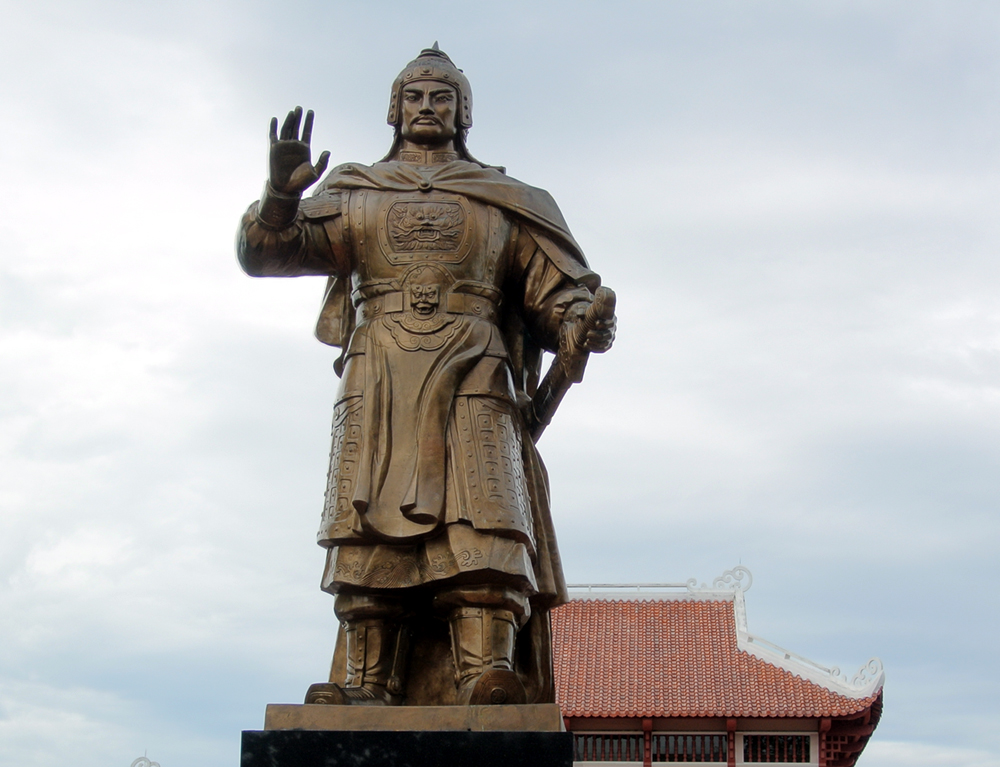
13. Julius Caesar: Architect of the Roman Empire
Julius Caesar, an illustrious figure among history’s greatest military commanders, ascended from humble origins to become a key architect in the rise of the Roman Empire. Born into the distinguished Julian clan, his familial ties with the Roman Republic’s members laid the groundwork for his future political endeavors.
Progressing through the ranks of the Senate, Caesar assumed the role of the governor of Spain around 61-60 BC. Forming a crucial alliance with Pompey and Crassus, he orchestrated a pivotal shift in the political landscape. Subsequently appointed as the governor of Roman Gaul, Caesar annexed the territories of France and Belgium, expanding the Roman Empire.
Upon the death of Crassus, conflict arose between Caesar and Pompey, triggering the Civil War as Pompey aligned with the Aristocracy against Caesar. Displaying strategic brilliance, Caesar forced his enemies out of Italy and, with Pompey’s demise, declared himself dictator, becoming the inaugural ruler of the Roman Empire. Despite his assassination a year later, Caesar’s brief but transformative reign left an indelible mark on the reformation of Rome.

16. Khalid ibn al-Walid: Conqueror in the Name of Islam
Khalid ibn al-Walid, heralded as one of history’s greatest military commanders, played a pivotal role in the expansion of Islam alongside Prophet Muhammad (PBUH). Initially harboring conflicting interests with the Prophet, Khalid ultimately embraced Islam, pledging his allegiance.
Instrumental in the conquest of Mecca alongside Muhammad, Khalid continued his unwavering support for the successors Abu Bakr and Umar during their campaigns in Iraq and Syria post-Muhammad’s demise. Successfully containing Byzantine forces, Khalid triumphantly subjugated Damascus.
Facing a formidable Byzantine assault, Khalid deftly repelled the invaders, capitalizing on the defection of Christian Arabs, Armenians, and others from the Byzantine Empire. In a decisive battle, he obliterated over 50,000 opposition forces, charting a triumphant path for the propagation of Islam. Khalid ibn al-Walid’s military prowess and commitment to Islam remain an enduring legacy in the annals of history.

19. Tran Hung Dao: Vanguard Against Mongol Incursions
Tran Hung Dao, an eminent figure among history’s greatest military commanders from the Tran Dynasty, rose to prominence as the Supreme Commander of Vietnam. Amid the Tran dynasty’s efforts to consolidate power in the Vietnamese kingdom, the Mongols, led by Kublai Khan, were amassing strength in Central Asia and Eastern Europe.
The first Mongol invasion of Vietnam in 1258 stemmed from demands for free passage, which were staunchly rejected by Tran Thai Tong, the ruling monarch. Under Tran Hung Dao’s strategic command, the Vietnamese forces, employing ingenious tactics, triumphed over the formidable Mongol army. By the 1280s, Tran Hung Dao assumed the role of commander in chief, successfully thwarting two subsequent Mongol invasions.
Employing counter-offensive tactics, Tran Hung Dao allowed the Mongols to enter the city before executing guerrilla warfare strategies to exploit their vulnerabilities. Beyond his military prowess, what elevated Tran Hung Dao to hero status in Vietnamese culture was his unparalleled ability to unite the entire nation in the face of external invaders.
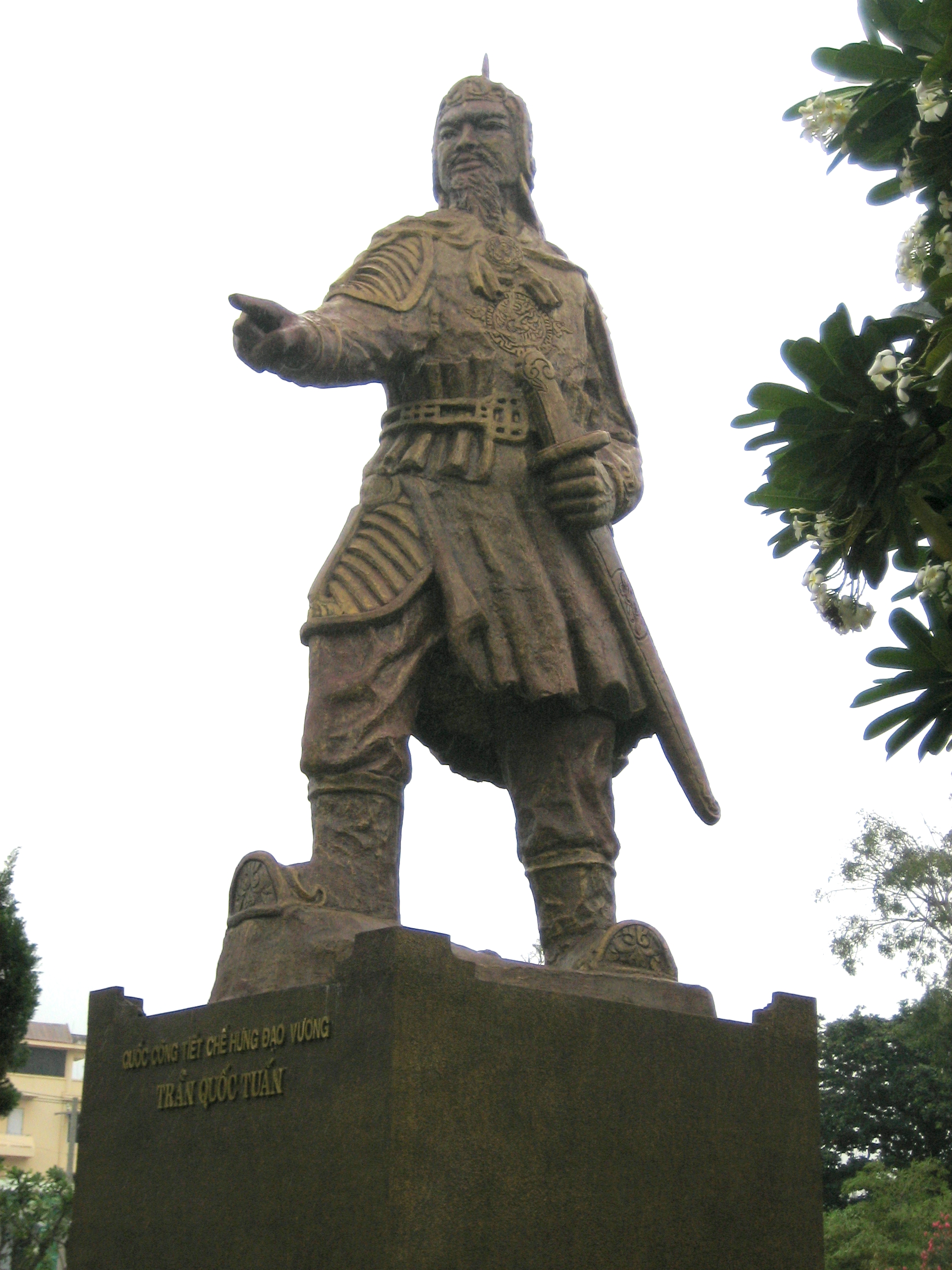
2-. Võ Nguyên Giáp: Architect of Vietnam’s Liberation
Võ Nguyên Giáp, an indomitable force in Vietnam’s history and regarded as one of the greatest military commanders, served as a general in the Vietnam People’s Army. Imbued with nationalism from his father, Giap actively participated in revolutionary activities against the French colonial regime.
After years of exile in China, Giap returned to Vietnam and undertook the arduous task of assembling a military force for the liberation of his homeland. In 1944, he ascended to the role of commander of the Vietnam Liberation Army.
Under Giap’s adept leadership, the Viet Minh resistance effectively thwarted Japanese attempts to occupy Vietnam. Notably, he emerged victorious against both French and American forces during the First Indochina War and the Vietnam War, etching his name in history as a formidable military strategist and a key architect of Vietnam’s liberation.
23. David IV of Georgia: Architect of Georgian Power
David IV, renowned as David the Builder and a luminary among history’s greatest military commanders, hailed from the Bagrationi dynasty. Despite ascending to the throne at the tender age of sixteen, he swiftly emerged as one of the most powerful and successful Georgian rulers. Instrumental in removing the Seljuk Turks from the country, David’s astute political acumen and tutelage under George of Chqondidi were pivotal in shaping his leadership.
Focusing on internal administration, David implemented reforms, curbing the influence of feudal lords and consolidating power within the state. His military prowess came to the forefront during the Battle of Didgori, where he strategically defeated the Turks, solidifying Georgia as the most dominant state in the Caucasus region under his leadership.

26. Napoleon Bonaparte: Conqueror and Code-Legislator
Napoleon Bonaparte, an eminent figure among the greatest military commanders in history, earned notoriety as a dictator while almost subduing the entire European continent. Originating from Corsica, Napoleon’s military brilliance propelled him to prominence during the French Revolution of 1789, culminating in his self-proclaimed rule after a successful coup d’état in 1799. Motivation – Mind – Success – Thinking – Productivity – Happiness
Using his strategic acumen, Napoleon pursued his ambition of European conquest. However, his arrogance proved to be his undoing. After setbacks against the Russians, he abdicated the throne and lived in exile. Undeterred, he briefly returned to power, only to be defeated conclusively in the Battle of Waterloo during the Hundred Days campaign.
While history paints him as a tyrant, Napoleon Bonaparte was an undeniably courageous soldier who championed the ideals of liberty, equality, and brotherhood. His legal code, a lasting legacy, forms the foundation of laws in much of the Western world, attesting to the multifaceted impact of this iconic military leader.

More Interesting Articles
- 61 Interesting Charlie Sheen Facts
- 19 Interesting Facts About Ryan Lochte
- 12 Interesting Fidel Castro Facts to Experience
- 11 Interesting Facts About Nostradamus
- 16 Interesting Bill Gates Facts that Inspire Anyone
- 16 Amazing Catherine Zeta-Jones facts
- Vasco da Gama – Route | Facts | Timeline | Biography
- Ferdinand Magellan – Voyage | Death | Route | Facts
- Hernán Cortés Who Defeated the Aztec Empire
- The life of Alexander Hamilton in American History
- Biography of Liaquat Ali Khan for the Beginner
- Indira Gandhi Biography from the Indian History
- Biography of Vikram Seth in 100 Words and More
- Biography of Bibhutibhushan Bandopadhyay
- Biography of William Wordsworth in 150 words
- Philosophies of George Washington on Political Parties
- George Washington Teeth – Hidden Facts Revealed
- George Washington Fun Facts that Provoke Inspiration
- Zachary Taylor – US President Biography and Death
- William Shakespeare Biography and Contributions
greatest generals of all time
greatest military leaders of all time
greatest military leader in history
best military leaders of all time
best military commanders of all time
the greatest general of all time
greatest military generals of all time
greatest american generals of all time
best military generals of all time
the greatest generals of all time
best war generals of all time
greatest military general of all time
greatest army generals of all time
best military general of all time
top military leaders of all time
the greatest military leaders of all time
top 10 military generals of all time
top military commanders of all time
top military generals of all time
greatest military of all time
top 10 military commanders of all time
greatest military leaders all time
top 10 military leaders of all time
top military generals in history
top 10 greatest military leaders of all time
best american generals of all time
greatest military leaders ever
the greatest military generals of all time
the greatest military commanders of all time
top ten military generals of all time
top ten military leaders of all time
top military commanders in history
best military commander in history
greatest military commanders of all time
